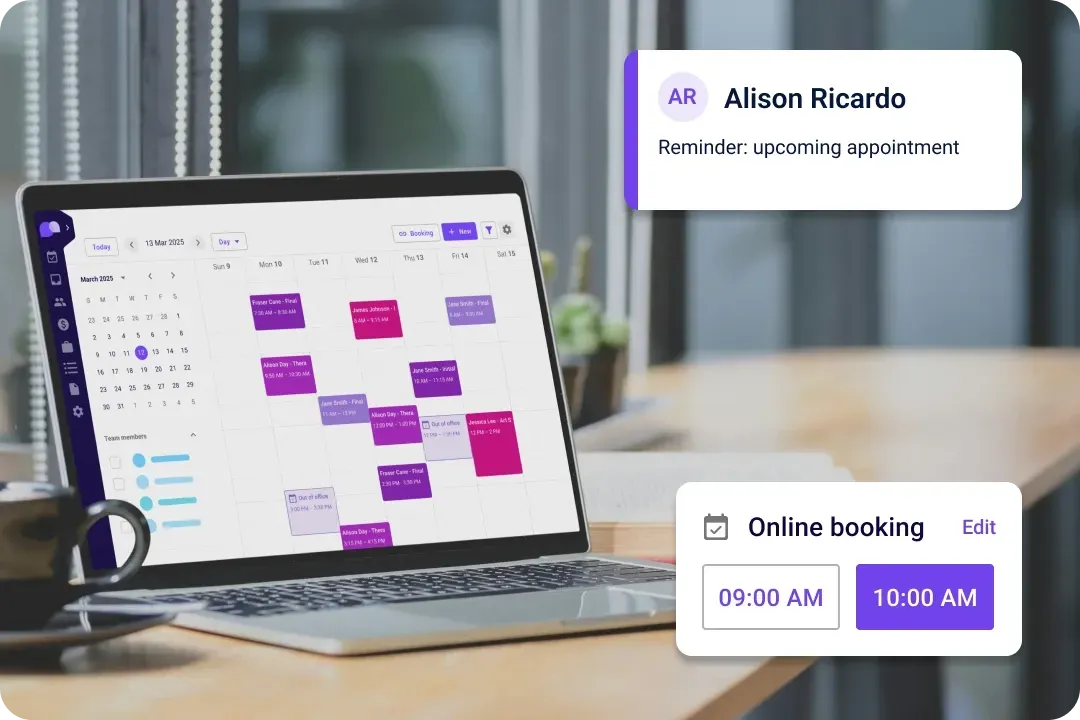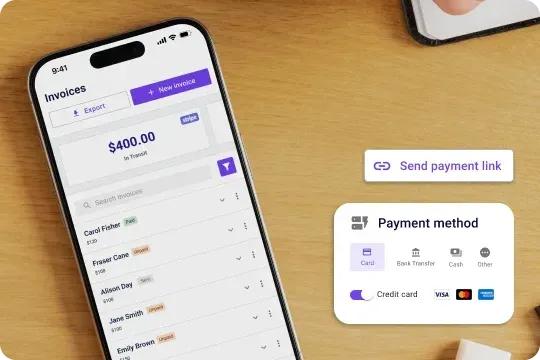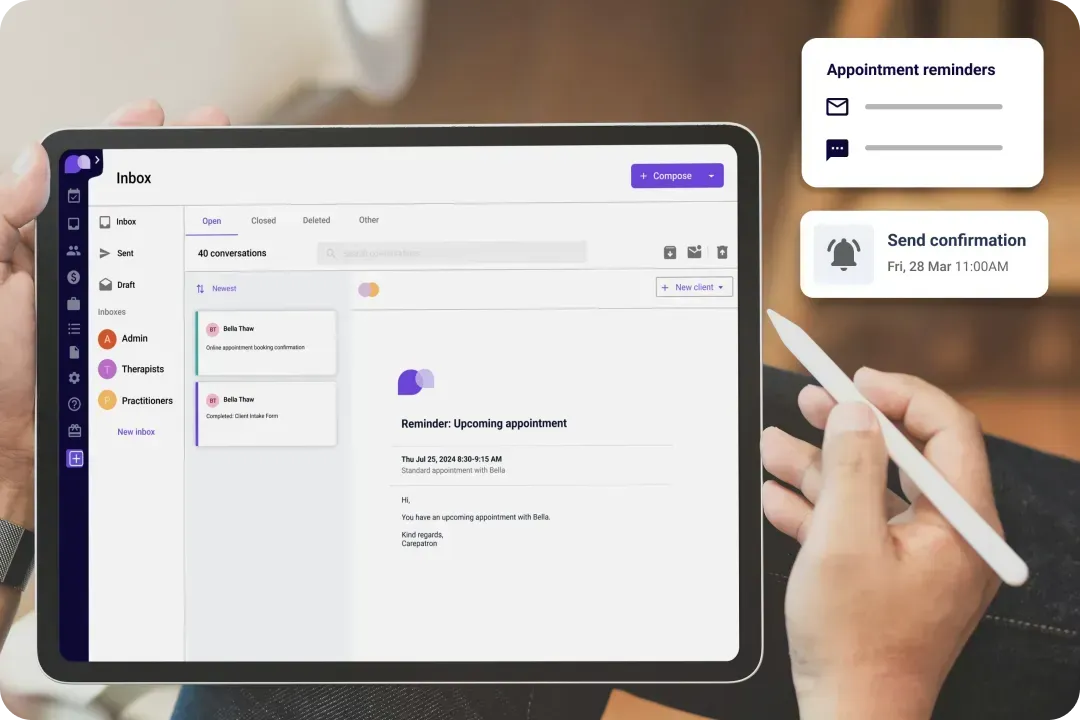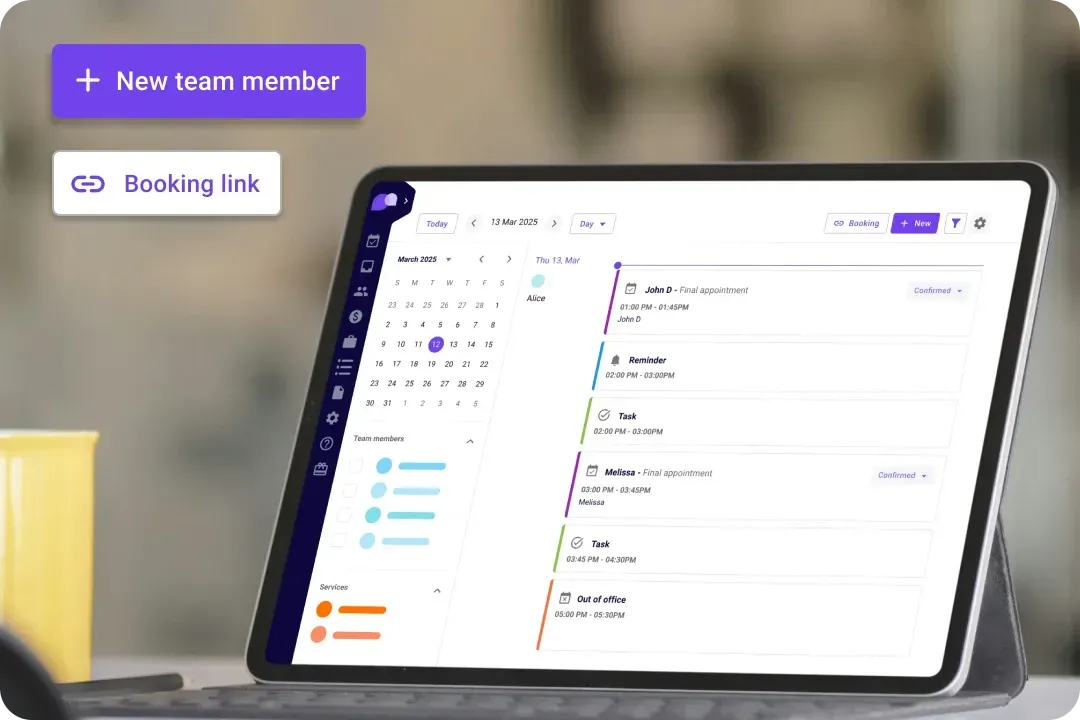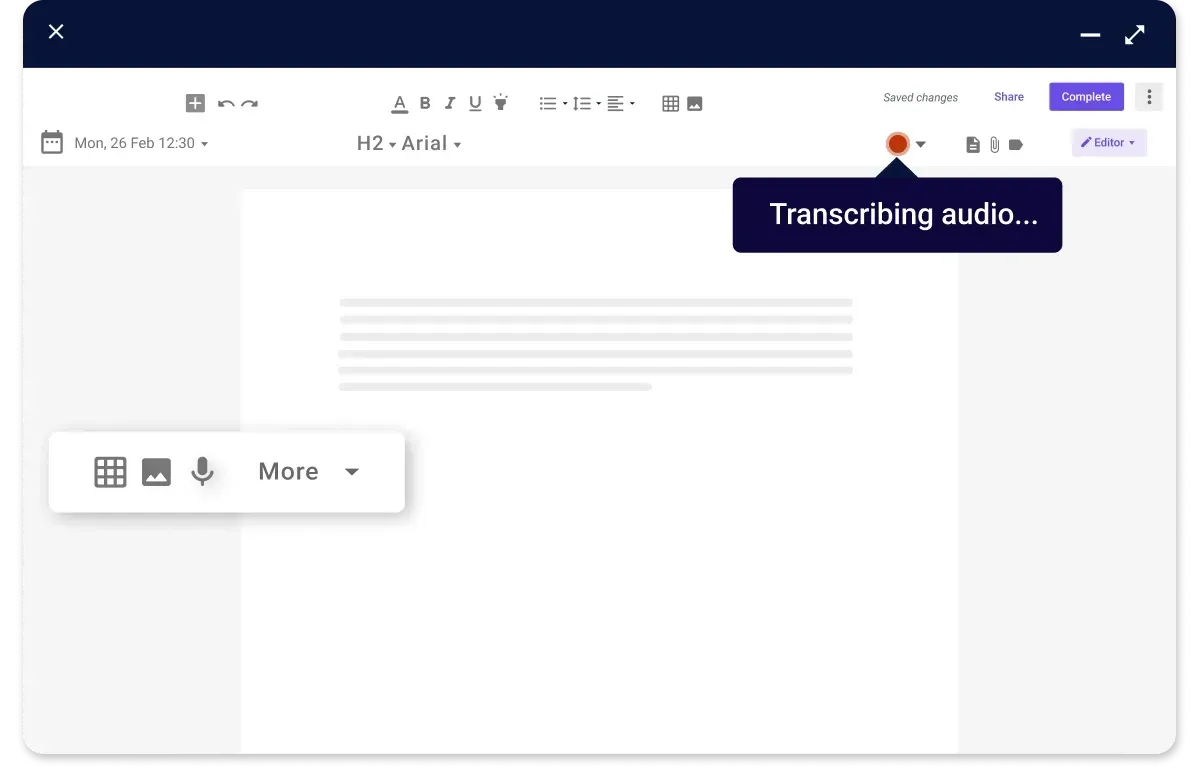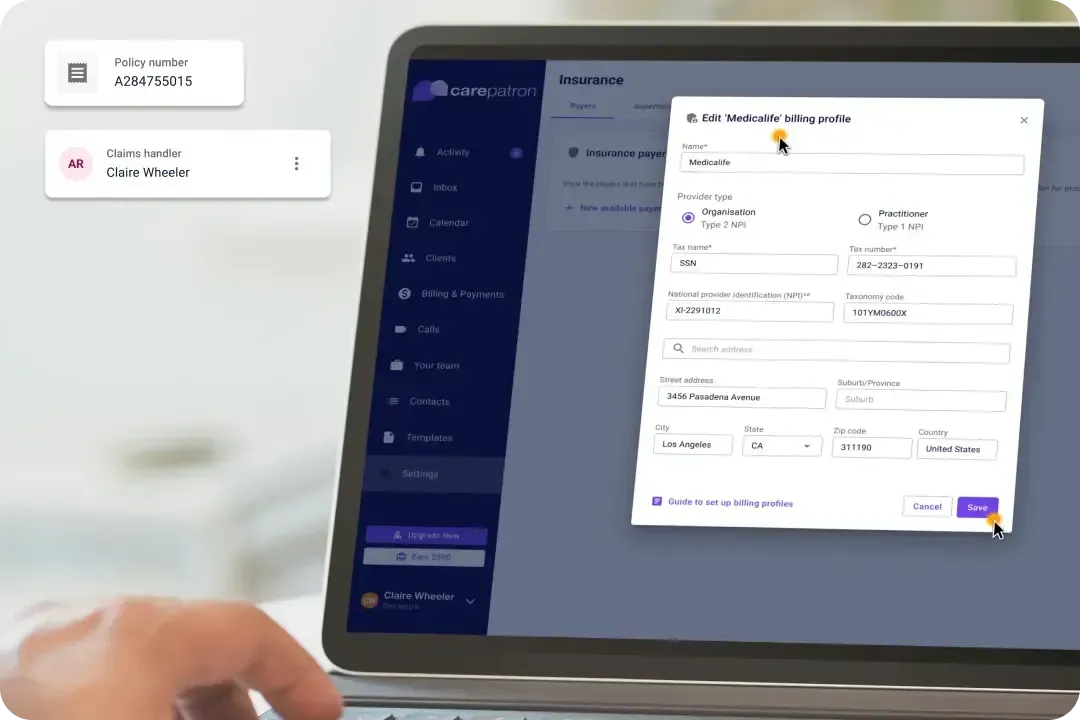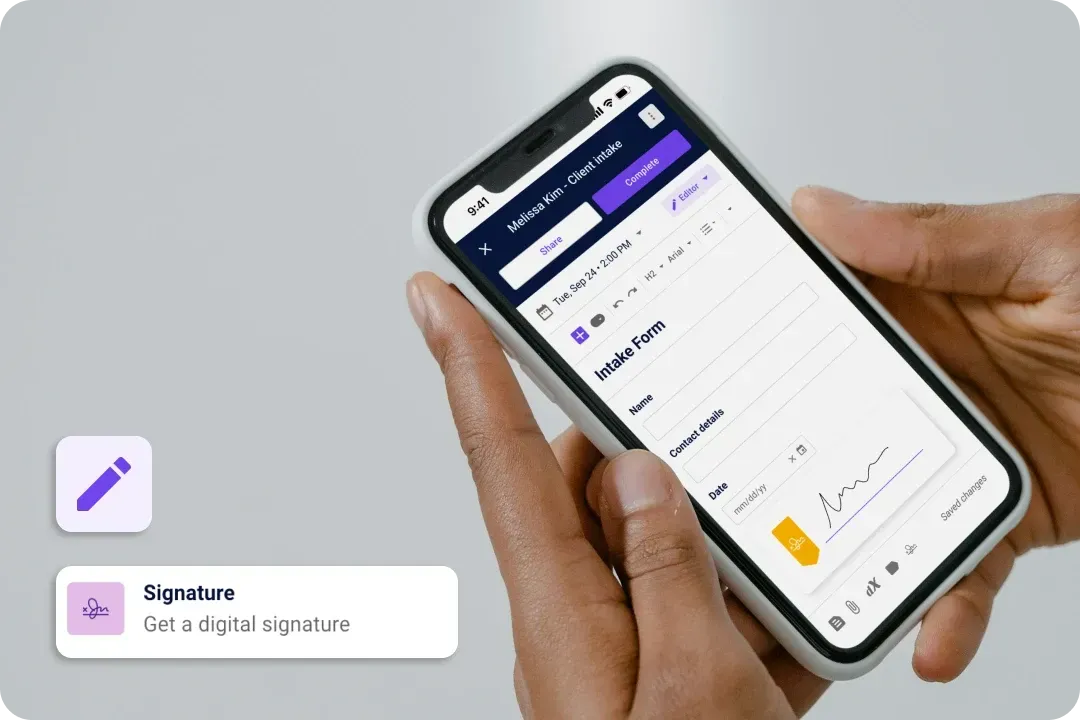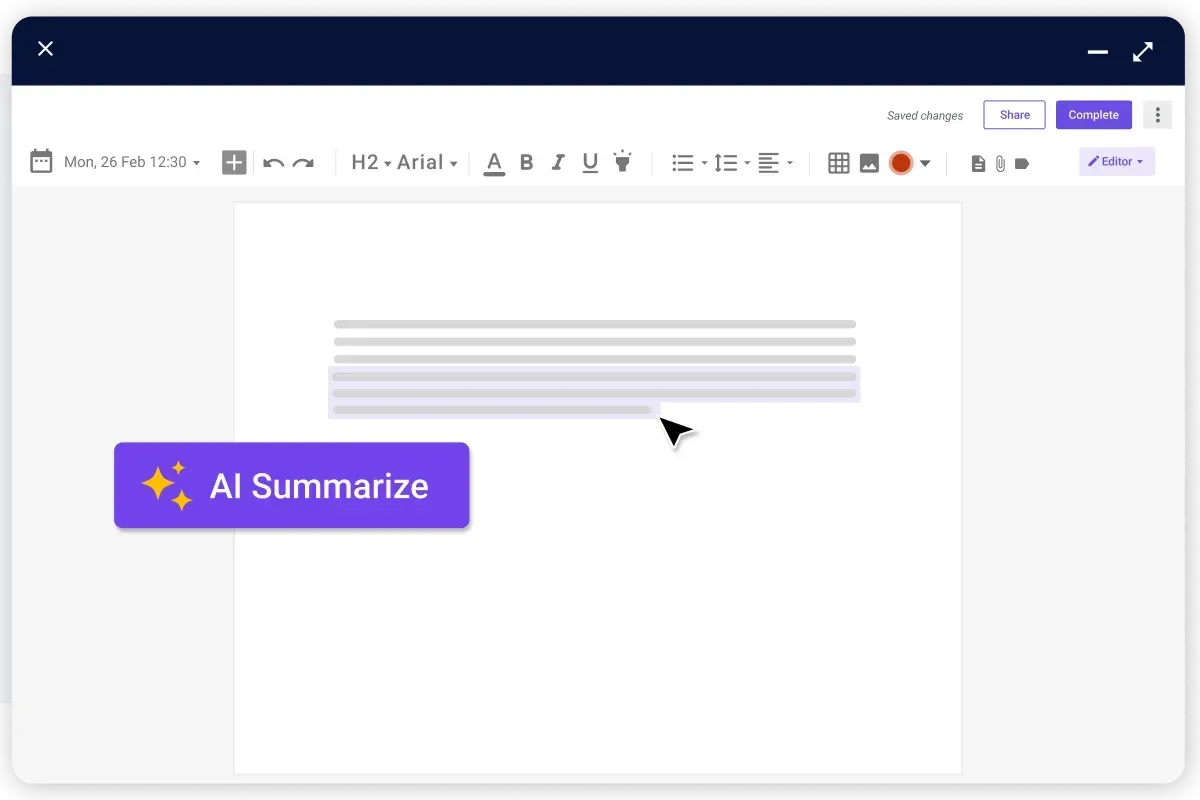Easy and effective Client Portal
Give patients the power to manage their care. From scheduling appointments to making online payments, the patient portal provides them with essential tools and support.
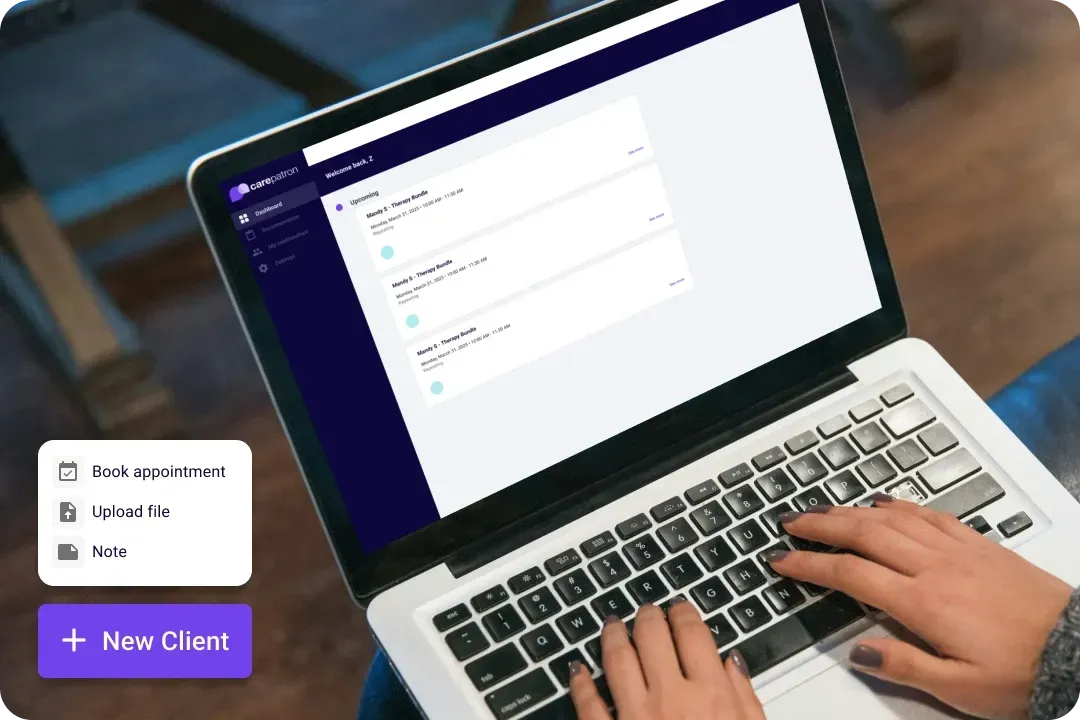
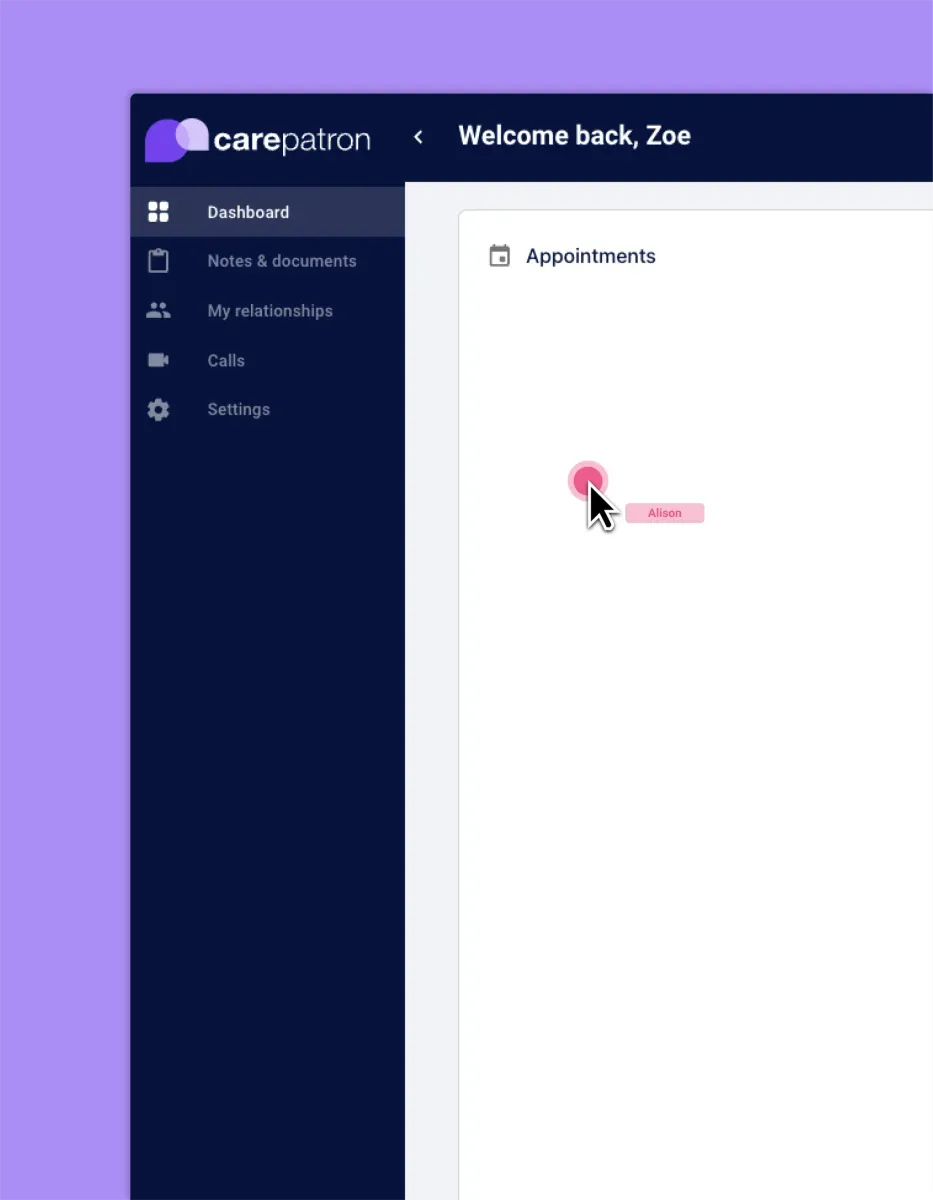
The free patient portal software for your healthcare team
Introducing our free patient portal software, revolutionizing healthcare team communication and patient care.

Secure patient access
Patients can easily and safely view their medical records. It ensures privacy and allows patients to participate actively in their healthcare.

Cost-effective solution
It doesn't require expensive software, making it affordable for all practices. This helps allocate resources efficiently while maintaining quality care.
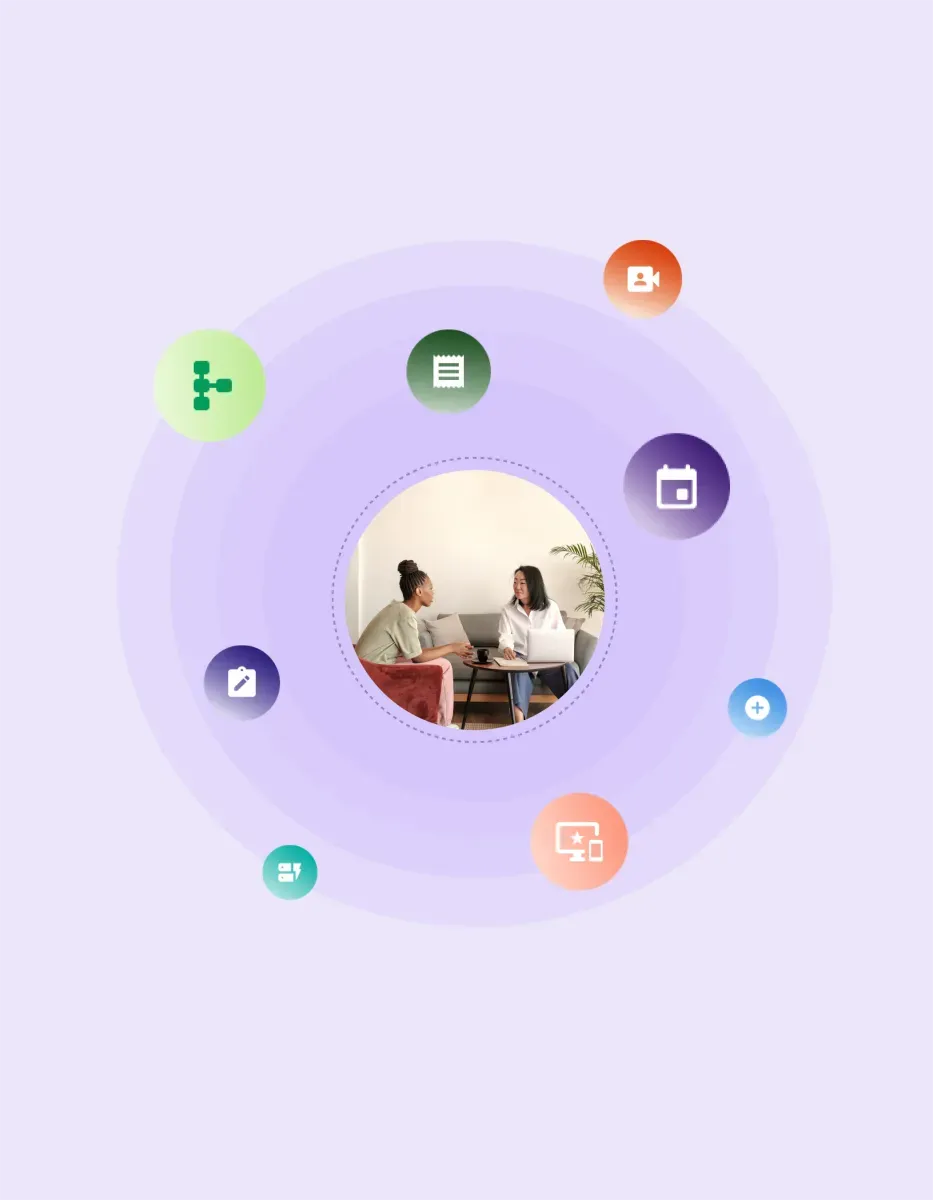
Carepatron’s patient portal features
Carepatron’s patient portal software offers a comprehensive suite of features for streamlined healthcare management.

Health record access
Securely view, update, and upload medical records. It ensures privacy and accessibility for patients and healthcare providers.

Clinical notes
Record and share clinical notes securely via the patient portal. Notes are safely stored in your EHR system, ensuring accuracy and confidentiality.

Secure payments
Make payments confidently, knowing your financial information is protected. We prioritize the confidentiality and integrity of your payment data.
Trusted by more than 100,000 practitioners

"It’s so easy to connect with my staff"
CLAIRE, PHYSICAL THERAPIST

"Carepatron saves me 2 hours everyday"
AEGEUS L, HEALTH COACH

"My team loves how simple it is to use"
ANDREA MAGNUS, PRACTICE MANAGER
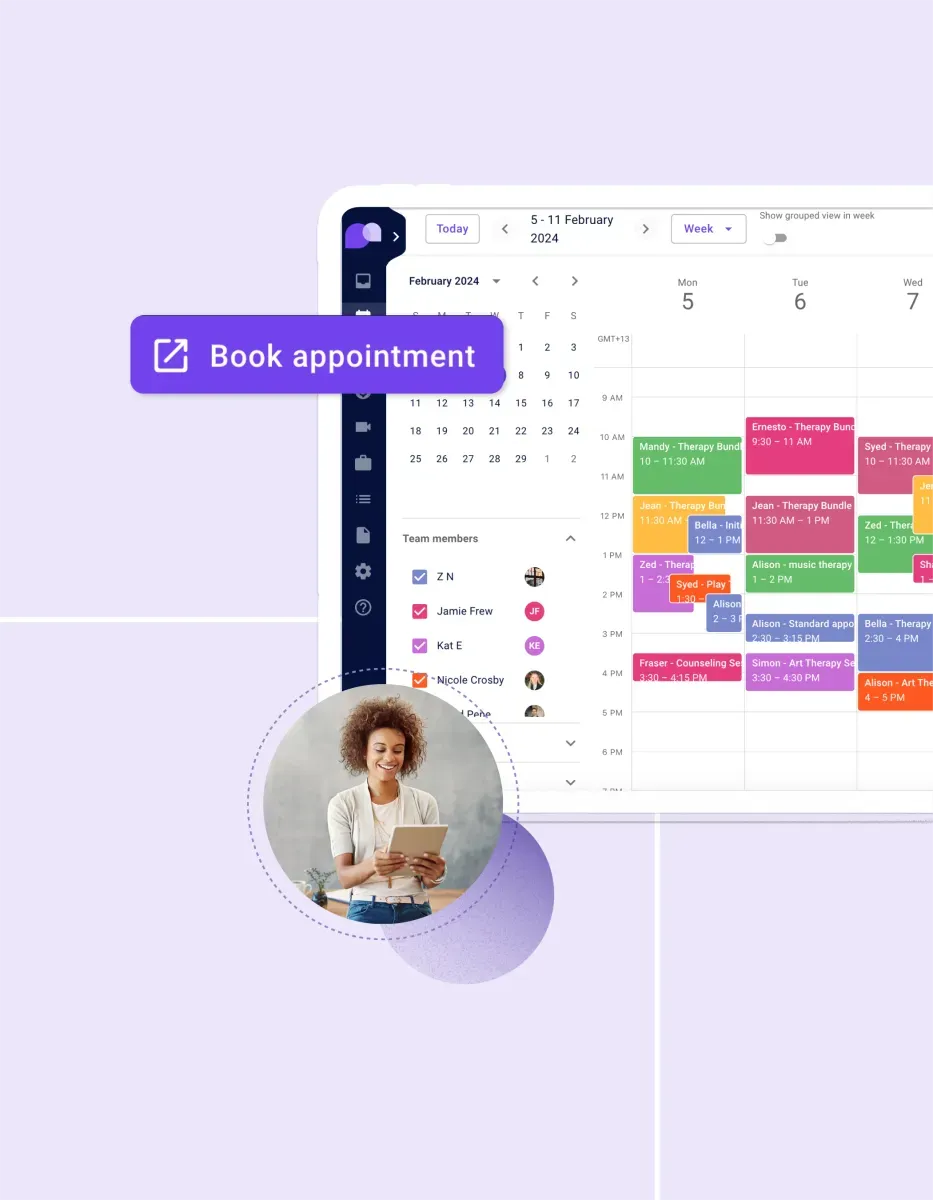
Benefits of using a free patient portal software
Our online patient portal apps revolutionize healthcare delivery. With just a Carepatron login, you can streamline appointment scheduling and heighten patient engagement.

Convenient access to medical records
Patients can securely view their medical information and test results online. This accessibility empowers individuals to stay informed about their health status and make informed decisions about their care.

Ability to schedule appointments
Patients can conveniently schedule appointments through the online patient portal without waiting on hold or during office hours. This saves patients and healthcare providers time, improving overall appointment management efficiency.

Secure access to payment details
Patients can securely access their payment details and manage billing through the online portal. This process reduces the risk of errors or delays associated with traditional payment methods.

Empowerment through educational resources
Online patient portals often offer educational resources and personalized health information. This empowers patients, providing them with the knowledge and tools to make informed health decisions.
Frequently asked questions
EHR and practice management software
Get started for free
*No credit card required
Free
$0/usd
Unlimited clients
Telehealth
1GB of storage
Client portal text
Automated billing and online payments





